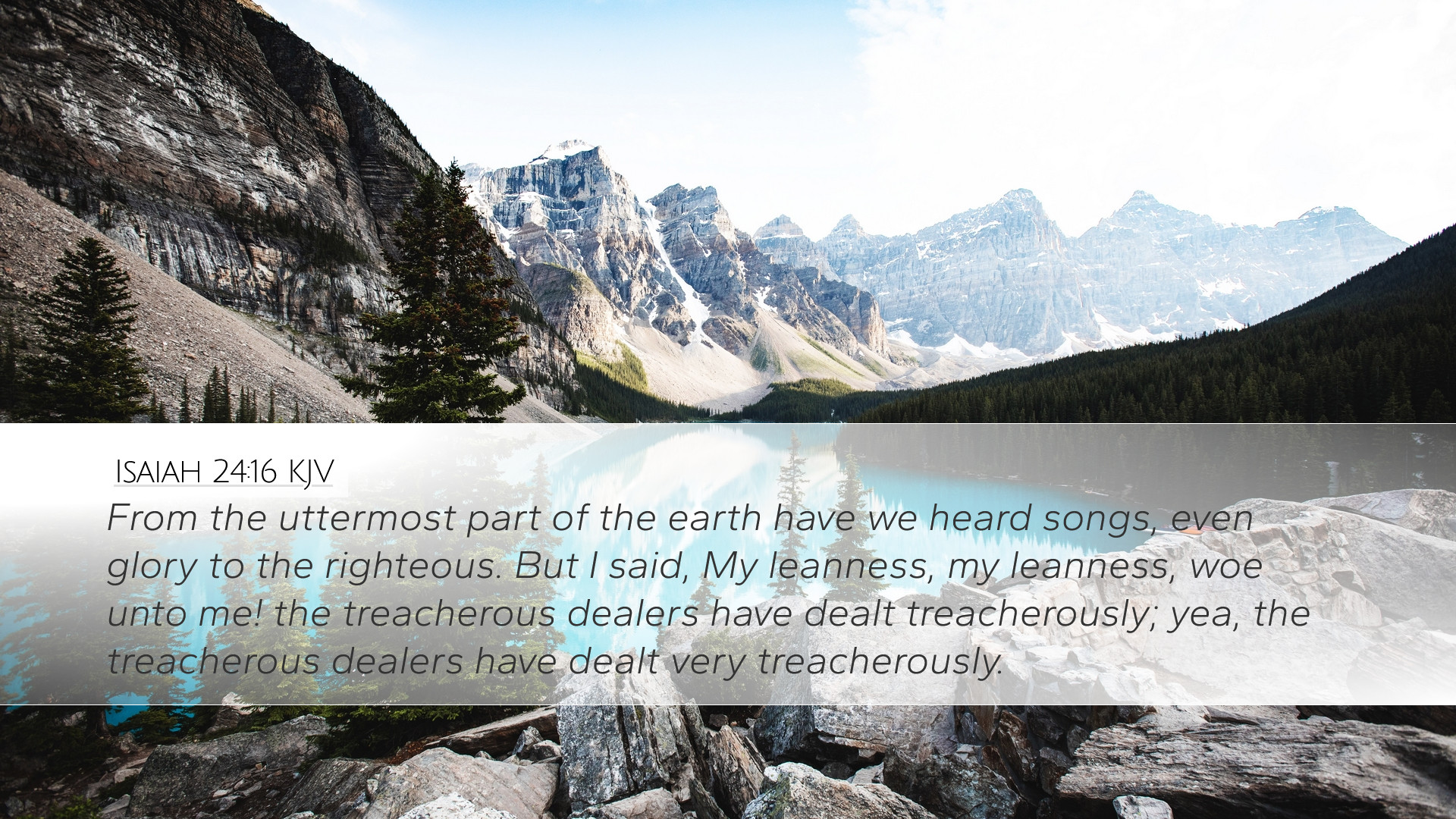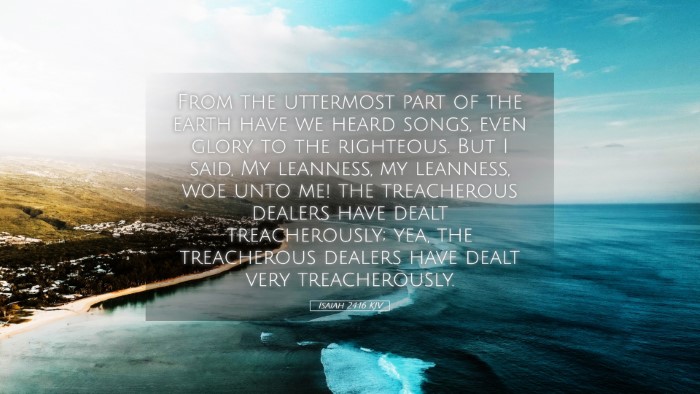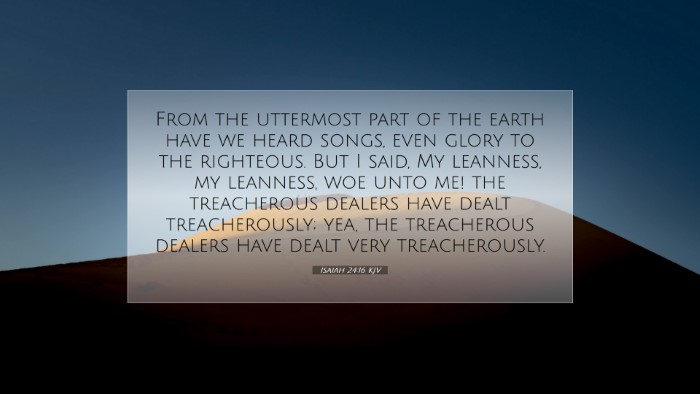Commentary on Isaiah 24:16
Verse: Isaiah 24:16 - "From the uttermost part of the earth have we heard songs, even glory to the righteous. But I said, My leanness, my leanness, woe unto me! The treacherous dealers have dealt treacherously; yea, the treacherous dealers have dealt very treacherously."
Introduction
This passage from the book of Isaiah serves as a somber reflection on the fallen state of the world contrasted against the proclamation of glory to God. Various commentators from public domain sources provide rich insights into the theological, social, and eschatological implications of this verse.
Thematic Overview
The verse encapsulates a duality of experience: the acknowledgment of divine glory amidst human treachery and sorrow. Through the voices of praise, there is also the recognition of despair that arises from betrayal and injustice.
Insights from Matthew Henry
Matthew Henry begins his commentary by highlighting the overarching theme of God's sovereignty and justice. He notes that the "songs" from the “uttermost part of the earth” represent both the universal recognition of God's righteousness and the hope of redemption. Despite the tumult of a sinful world, praise arises as a testament to God's enduring glory.
Henry also emphasizes the paradox of joy and lament in the believer’s life. He remarks, "While the ransomed sing with joy, the remnants of sorrow remain." This duality invites reflection on the nature of human experience in relation to divine presence.
Exploration by Albert Barnes
Albert Barnes examines the implications of “treacherous dealers.” He assigns a critical interpretation to this term, implying betrayal within social and political spheres. According to Barnes, the "woe" expressed in the second part of the verse reflects a deep-seated despair that arises not only from individual betrayal but also from systemic injustices.
He discusses the global reach of God's glory and how, even in the face of treachery, He remains the ultimate source of righteousness. The juxtaposition of "glory to the righteous" against personal lament underscores the prevailing tension between hope and despair within a fractured world.
Adam Clarke's Analysis
Adam Clarke brings a nuanced perspective, particularly focusing on the emotional response articulated in the verse. He points out the personal anguish that the speaker experiences: "My leanness, my leanness." Clarke interprets this repetition as an intense cry for recognition of personal suffering amidst the broader context of societal upheaval.
Clarke explains that this emotional response is a microcosm of Israel's spiritual condition during Isaiah's time: “[It] illustrates the feeling of desolation that permeated the nation because of their estrangement from God.” This provides a theological insight into the nature of lamentation, which both acknowledges present suffering and anticipates future redemption.
Theological Reflections
- The Problem of Evil: The contrast between divine glory and human treachery raises profound questions regarding the existence of evil. The acknowledgment of treachery suggests a world that is deeply flawed and yet still moving towards a recognition of God’s righteousness.
- The Role of Lamentation: Lament serves as a vital aspect of the spiritual life. It is essential for fostering authentic faith amidst suffering, reminding believers that their pain has a voice in the narrative of God's redemptive work.
- The Universal Nature of Praise: The songs "from the uttermost part of the earth" imply that God's glory transcends geographical and cultural boundaries. This points towards an eschatological vision where all nations, despite their failings, will ultimately recognize the Lord's righteousness.
Application for Pastors and Scholars
In preaching and studying Isaiah 24:16, pastors and theologians can emphasize the necessity of acknowledging both the joys and pains of the Christian life. This passage serves as a reminder that while the church is called to proclaim the righteousness of God, it must also address the realities of suffering and betrayal prevalent in contemporary society.
Conclusion
As we reflect on Isaiah 24:16, we are invited to engage with both the majesty of God's righteousness and the sorrow of human betrayal. The insights from public domain commentaries illuminate the complexities of faithful living in a world marked by both glory and grief. Embracing this dual experience enriches our understanding of God's work and prepares us to proclaim His righteousness amidst life’s challenges.


